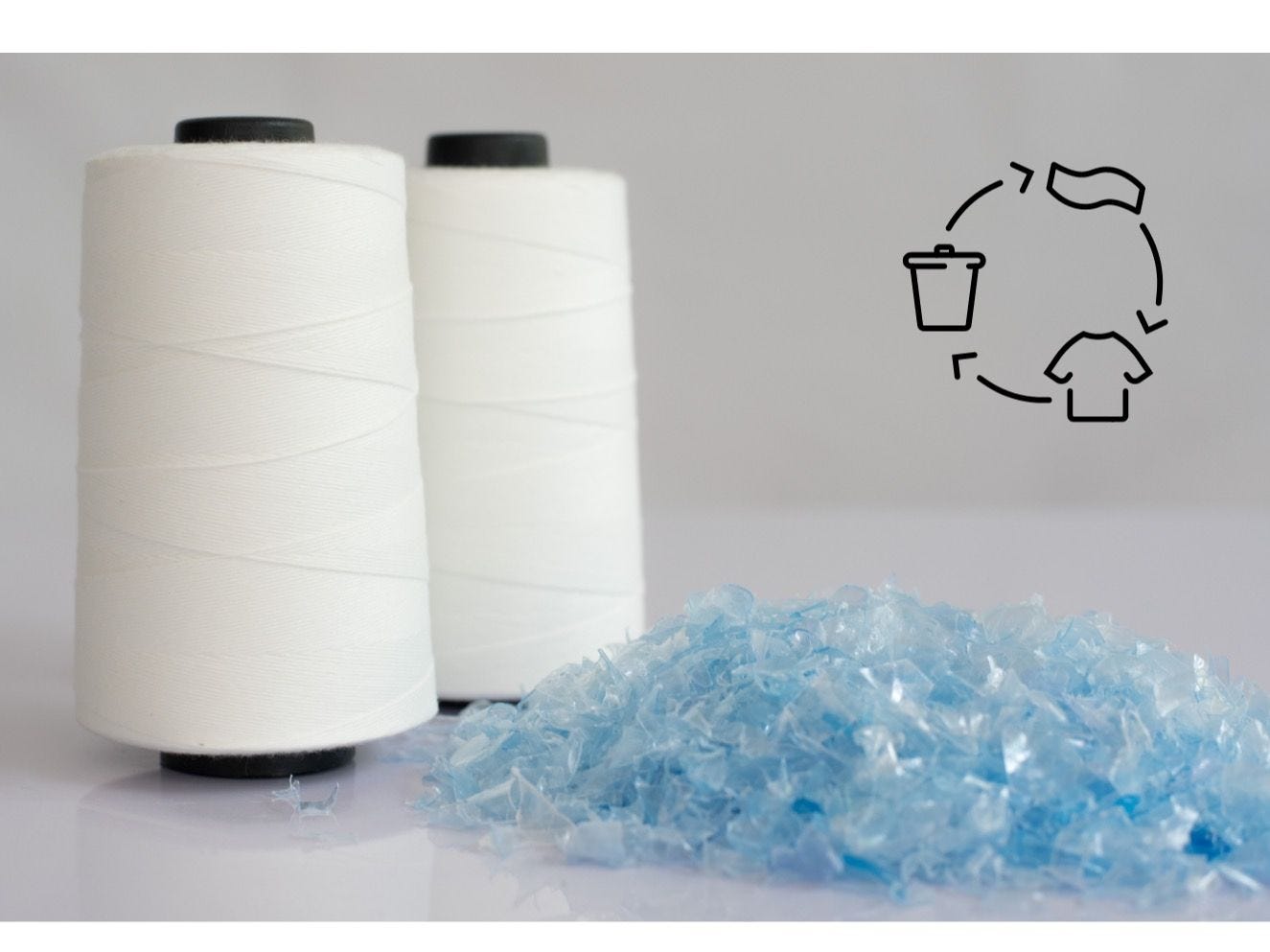The Rise of Recycled Polyester: A sustainable shift in the textile industry

Globally, concerns about the environmental impact and sustainability of the fashion industry have taken center stage. And one of the most promising developments in this shift is the increasing use of recycled polyester (rPET). The 2025 Recycled Polyester Challenge, launched in 2021 by Textile Exchange in collaboration with the UNFCCC's Fashion Industry Charter for Climate Action, has galvanized the industry's commitment to sustainability. The challenge calls on companies to pledge to source 45 to 100 per cent of their polyester from recycled sources by 2025. This initiative aims to curb the reliance on virgin fossil-based polyester, mitigating the environmental damage associated with its production.
The challenge
As of 2024, 121 brands and suppliers signed up for the challenge, showcasing a growing commitment to rPET adoption. A significant 57 per cent of the signatories have committed to transitioning to 100 per cent recycled polyester by 2025. What’s more lmost 28 per cent of the participating brands and suppliers have already achieved their recycled polyester targets in 2023, showcasing the feasibility of the transition.
However, while the 2025 Recycled Polyester Challenge has garnered significant momentum, challenges remain in achieving widespread rPET adoption. One major challenge is scaling production. The current production of recycled polyester needs to be significantly scaled up to meet the growing demand. Meanwhile, investing in advanced recycling technologies, such as chemical recycling, is crucial to ensure the quality and longevity of recycled fibers. Supply chain collaboration is also crucial for its success. Building robust and transparent supply chains is essential for sourcing and tracing recycled polyester. And most importantly, educating consumers about the benefits of recycled polyester and encouraging them to choose sustainable products is vital.
Global rPET production and India’s share
The global production of recycled polyester is on the rise, with increasing environmental awareness and industry initiatives. Leading countries in rPET production include.
Table: Global rPET production
|
Country |
Share of global production |
|
China |
35% |
|
India |
15% |
|
USA |
10% |
|
EU |
25% |
|
Others |
15% |
(Source: Statista, 2023)
China is the leading producer of rPET followed by India and the US. In fact, India plays a significant role in the global recycled polyester landscape, contributing approximately 15 per cent of the total production. The country's textile industry is adopting rPET, backed by government initiatives, growing consumer awareness, and the availability of recycled PET bottles.
However, while the industry is moving forward with growing use of recycled polyester, there's a need to boost progress to meet the ambitious targets set by the 2025 Recycled Polyester Challenge. The current market share of recycled polyester in the apparel industry is estimated to be around 18 per cent, up from 14 per cent in 2019. Experts project the market share of recycled polyester will reach 30 per cent by 2025, indicating a positive trend but still falling short of the 45 per cent target set by the challenge.
The moot point is that the transition to recycled polyester is a critical step towards creating a more sustainable and environmentally responsible textile industry. While challenges remain, the growing momentum and commitment from brands, suppliers, and consumers provide hope for a future where recycled materials become the norm rather than the exception. Continued innovation, collaboration, and consumer education will be key to achieving the ambitious goals of the 2025 Recycled Polyester Challenge and driving a circular economy for the fashion industry.
